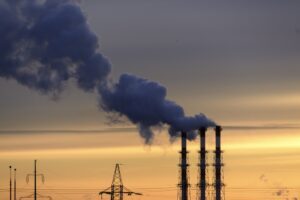Fossil fuels — coal, oil, and natural gas — power much of the modern world. They’ve fueled industrial revolutions, lit up cities, and connected continents. But they’ve also driven climate change, polluted ecosystems, and deepened our reliance on finite resources. While most people know the basics, there’s a lot more beneath the surface. Here are 20 surprising facts — both good and bad — about fossil fuels.
1. Fossil Fuels Are Ancient Sunlight Stored Underground
The energy in fossil fuels comes from sunlight captured by plants millions of years ago. Over time, heat and pressure transformed that stored energy into coal, oil, and gas.
2. Fossil Fuels Still Power Over 80% of the World’s Energy
Despite rapid renewable energy growth, fossil fuels still dominate global energy production, making the transition away a massive challenge.
3. Coal Was the Original Backbone of Industrial Power
In the 19th and early 20th centuries, coal fueled factories, railways, and economic growth worldwide.
4. Fossil Fuels Enabled Global Trade and Transportation
Cars, ships, and airplanes run mostly on petroleum-based fuels, allowing global commerce and travel to thrive.
5. Natural Gas Burns Cleaner Than Coal — But Still Pollutes
Natural gas emits about 50–60% less CO₂ than coal, making it cleaner in terms of carbon emissions, though methane leaks remain a problem.
6. Oil and Gas Built Entire National Economies
Countries like Saudi Arabia and Qatar owe much of their economic success to fossil fuel exports.
7. Fossil Fuel Production Releases Hidden Methane Emissions
Methane, a greenhouse gas up to 84 times more potent than CO₂ over 20 years, often leaks during drilling and transportation.
8. Oil Is a Feedstock for Hundreds of Consumer Products
Beyond fuel, oil is used in plastics, fertilizers, cosmetics, and clothing fibers like polyester.
9. Oil Spills Can Damage Ecosystems for Decades
Disasters like the Exxon Valdez (1989) and Deepwater Horizon (2010) show how long-lasting the environmental toll can be.
10. Burning Fossil Fuels Contributes to Millions of Premature Deaths
Air pollution from fossil fuel combustion causes respiratory and cardiovascular diseases worldwide.
11. Coal Mining Permanently Alters Landscapes and Ecosystems
Practices like mountaintop removal destroy forests, pollute waterways, and disrupt biodiversity.
12. Fossil Fuels Powered the Digital and Technological Age
From manufacturing electronics to powering data centers, fossil fuels made the modern tech era possible.
13. Some Fossil Fuel Reserves Are Extremely Difficult to Extract
Deep-sea drilling and oil sands require advanced technology, higher costs, and pose higher environmental risks.
14. Fossil Fuel Subsidies Still Outweigh Renewable Energy Support
Governments worldwide spend hundreds of billions annually on fossil fuel subsidies, slowing clean energy adoption.
15. Carbon Emissions from Fossil Fuels Change Ocean Chemistry
CO₂ dissolves in seawater, increasing acidity and threatening coral reefs and shell-building marine life.
16. Energy Infrastructure Locks in Future Emissions
Pipelines, refineries, and coal plants built today could keep emitting greenhouse gases for decades.
17. Carbon Capture Technology Offers Some Hope — at a Cost
Carbon capture and storage (CCS) can reduce emissions from fossil fuel plants, but it’s expensive and not widely deployed.
18. Fossil Fuels Play a Role in Modern Medicine
Petroleum derivatives are used in pharmaceuticals, medical devices, and synthetic materials in hospitals.
19. Fossil Fuel Jobs Are Declining in Some Regions
Automation, clean energy growth, and shifting markets are reducing employment in traditional fossil fuel industries.
20. Fossil Fuels Won’t Disappear Overnight
Even with renewable growth, fossil fuels are projected to remain part of the energy mix for decades unless major policy changes occur.
Final Thoughts on the Good and Bad of Fossil Fuels
Fossil fuels are both the foundation of modern life and one of the greatest threats to planetary health. Understanding their benefits and costs helps us chart a path toward a sustainable energy future. The challenge ahead is not just technological, but also social and political: how fast and how fairly can we move beyond them?








